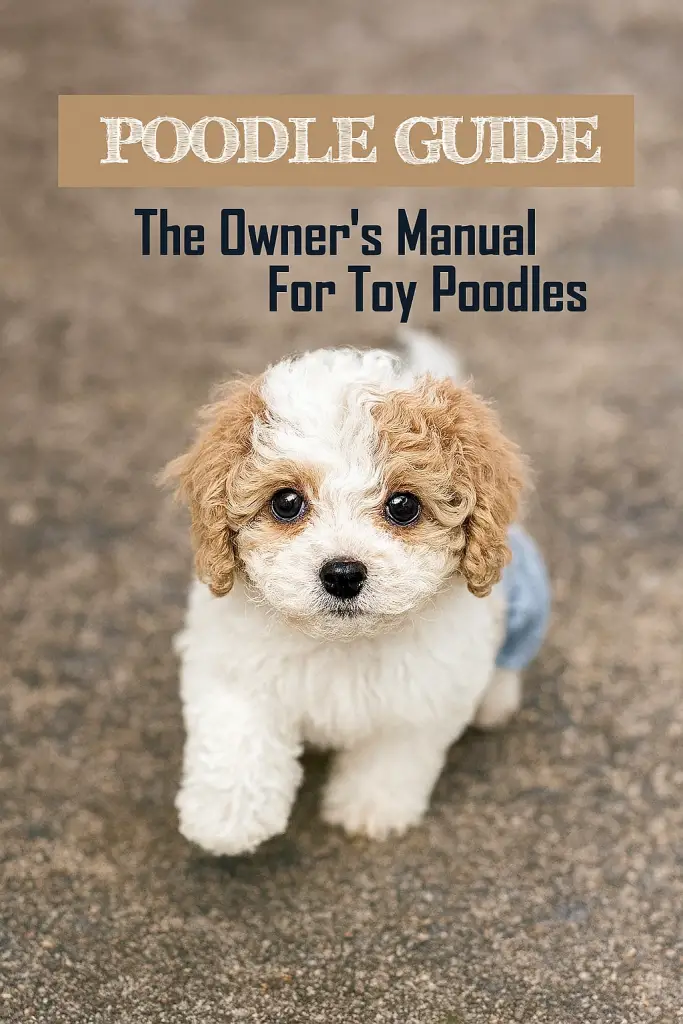
So, you’re thinking of bringing a Toy Poodle home—or maybe you already have one bouncing around your feet right now. Either way, welcome to a whole new world of cuteness, intelligence, and a little bit of sass.
Toy Poodles aren’t just adorable little fluffballs. They’re one of the smartest dog breeds out there, and they’ve got personality for days.
Let’s dive into what makes them so special—and what you, as a caring owner, need to know.
What Makes Toy Poodles So Unique?
These little guys weigh around 4–6 lbs, stand under 10 inches tall, but don’t let the size fool you. They’ve got:
- Brains – Ranking 2nd in dog intelligence after the Border Collie
- Energy – Always up for a walk, play session, or new trick
- Style – With hypoallergenic, curly coats that turn heads everywhere
They’re great for apartment living, small homes, or even RVs. But they still need mental stimulation and exercise—otherwise, they’ll start making their own fun. And you won’t like that kind of fun.
Daily Care: Keeping That Fluff Happy and Healthy
Here’s a quick look at what your daily routine might look like:
| Care Area | Frequency | Notes |
|---|---|---|
| Brushing | Daily | Prevents matting and tangles |
| Walking/Exercise | 30–60 mins/day | Split into two sessions if needed |
| Feeding | Twice a day | Use high-quality small breed food |
| Training | 10–15 mins/day | Keep sessions short and positive |
| Grooming | Every 4–6 weeks | Professional grooming is best |
Pro Tip: Start brushing early when they’re pups so they get used to it. It’ll save you both a ton of stress later.
The Toy Poodle Temperament: Smart, Loyal, and a Little Cheeky
These pups love their humans. They get super attached, which means:
- They’ll follow you everywhere (yes, even the bathroom)
- They’re quick to learn tricks and commands
- They can get anxious if left alone too long
Want them to stay confident and well-rounded? Socialize them young. Let them meet people, hear noises, sniff things—all that good stuff.
Common Health Concerns in Toy Poodles
Like all purebred dogs, Toy Poodles have a few things to watch for. Not to scare you—just so you’re informed:
- Luxating Patella (kneecap slips out of place)
- Progressive Retinal Atrophy (PRA) – affects vision
- Dental Issues – small dogs = small mouths = crowded teeth
- Hypoglycemia – especially in puppies
Just stay on top of vet visits and keep an eye on any weird changes in behavior or appetite.
Tips for First-Time Toy Poodle Owners
If you’re just starting out, here’s what’ll make your life easier:
- Crate train early – It’s a safe place, not a punishment
- Stick to a schedule – Dogs love routine
- Use positive reinforcement – Toy Poodles thrive on praise
- Don’t skip obedience training – It’ll help with that clever (and sometimes sneaky) brain
- Invest in chew toys – Save your slippers
Conclusion
Toy Poodles might be small, but they’ve got big hearts, big personalities, and even bigger smarts. They’re loyal to the core, eager to learn, and perfect for anyone who wants a close companion they can really bond with. From their unique grooming needs to their playful energy, owning a Toy Poodle is a commitment—but one that brings tons of joy.
Stick with this guide, give ‘em love, structure, and stimulation, and you’ll have one happy little pup in your life.
